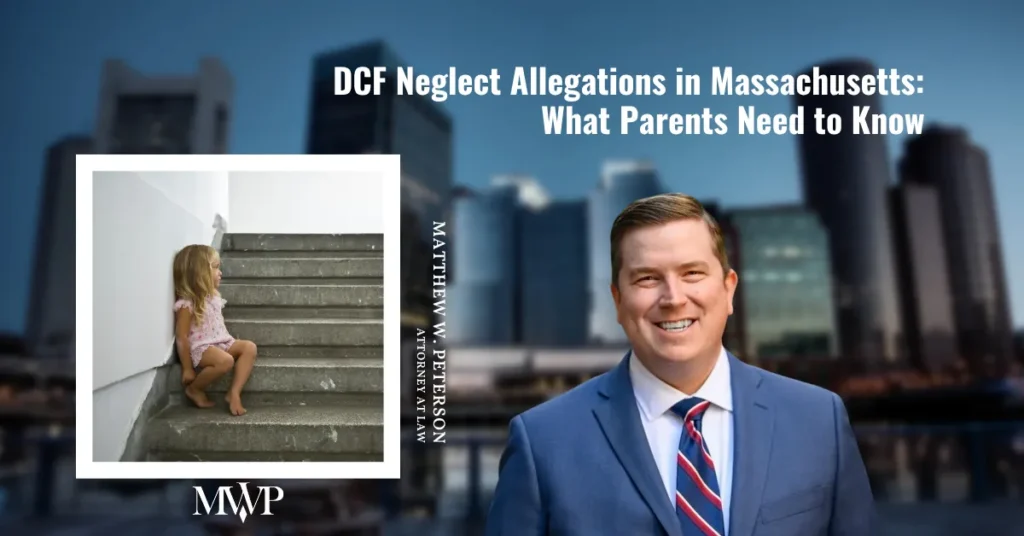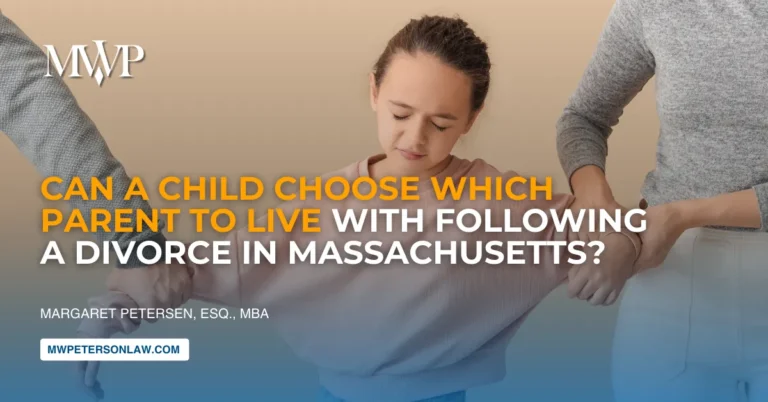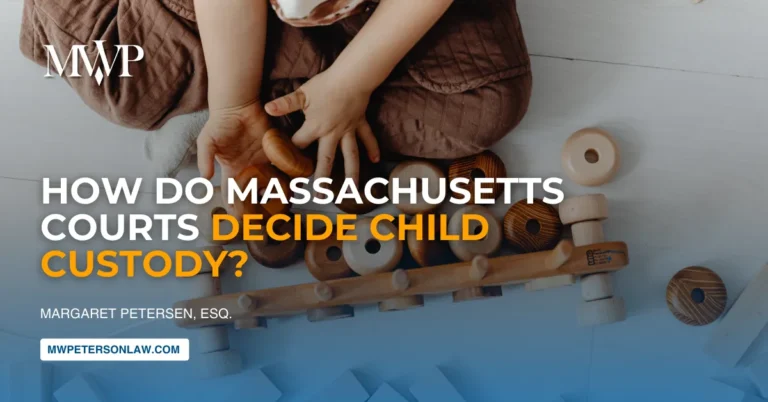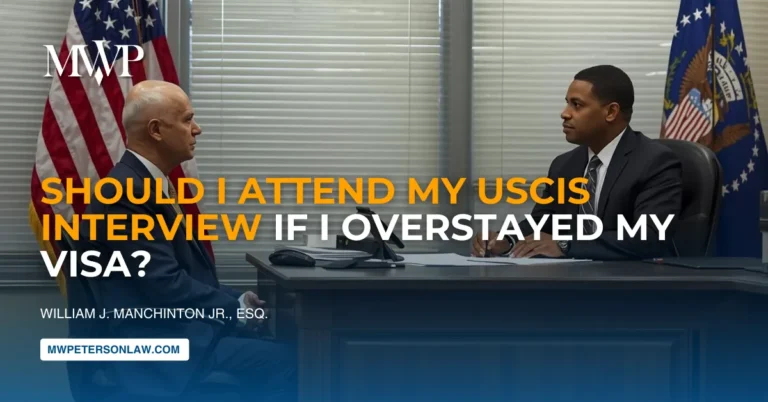Facing Neglect Allegations In Massachusetts?
If you’re facing neglect allegations of your child from the Department of Children and Families (DCF), you’re likely feeling overwhelmed and frightened. These situations are incredibly stressful, but understanding what DCF must prove and how the process works can help you navigate this difficult time with greater clarity and confidence. If you’re searching for a DCF lawyer in Massachusetts, you’re taking an important step toward protecting your family’s future.
What Does "Neglect" Actually Mean?
Under Massachusetts law, neglect has a specific definition that may be broader than what most people think. Neglect means failure by a caretaker, either deliberately or through negligence or inability, to take those actions necessary to provide a child with minimally adequate food, clothing, shelter, medical care, supervision, emotional stability and growth, or other essential care.
This definition includes several important elements. First, it must involve a caretaker – someone responsible for the child’s welfare. Second, the failure can be deliberate, negligent, or due to inability. Third, the standard is “minimally adequate” care, not perfect parenting.
Crucially, such inability is not due solely to inadequate economic resources or solely to the existence of a handicapping condition. This means DCF cannot support neglect allegations based purely on poverty or disability. There must be something more than financial hardship or a medical condition alone.
It’s also worth noting that neglect can occur while the child is in an out-of-home or in-home setting. Location doesn’t matter – what matters is whether adequate care was provided.
The "Reasonable Cause to Believe" Standard
Here’s something that might surprise you: DCF doesn’t have to prove that neglect actually occurred. Instead, they only need to show there was “reasonable cause to believe” that neglect occurred.
So what does “reasonable cause to believe” mean? The law defines it as “a collection of facts, knowledge or observations which tend to support or are consistent with the allegations, and when viewed in light of the surrounding circumstances and credibility of persons providing information, would lead one to conclude that a child has been … neglected“.
This is a relatively low threshold. DCF doesn’t need definitive proof – they just need enough information that would lead a reasonable person to believe neglect might have happened. Think of it as similar to having enough evidence to investigate further, rather than enough evidence to convict in criminal court.
What This Standard Means for Your Case
The reasonable cause standard serves what courts call a “threshold function” to identify “known or suspected instances of child abuse and neglect“. The purpose isn’t to determine definitively whether neglect occurred, but rather “to determine whether further action is warranted”.
This means the hearing isn’t asking whether you actually neglected your child. Instead, the question is whether there was substantial evidence supporting DCF’s determination that there was reasonable cause to believe neglect occurred.
Additionally, no showing of actual harm is required. DCF can support a neglect allegation even if your child wasn’t actually harmed, as long as there’s reasonable cause to believe the situation could have led to harm.
The Role of Professional Judgment
Something important to understand is that hearing officers must “give due weight to the clinical judgments of DCF social workers“. This means the professional opinions and assessments of DCF staff carry significant weight in these proceedings.
However, this doesn’t mean DCF decisions are automatically upheld. You still have the right to challenge their findings and present evidence in your defense. Working with an experienced DCF lawyer in Massachusetts can be crucial in understanding your rights and building the strongest possible case.
Your Burden in the Appeal Process
If you’re appealing a DCF finding of neglect, you need to understand where the burden of proof lies. At the hearing, the appellant has the burden to show, by a preponderance of the evidence, that DCF “has not demonstrated there is reasonable cause to believe that a child was … neglected“.
This means you must prove that DCF’s evidence doesn’t meet even the reasonable cause standard. You’re not just presenting your side of the story – you’re specifically challenging whether DCF had sufficient reason to believe neglect occurred.
Real-World Application
To understand how this works in practice, consider a case where a father violated a court order restricting his contact with his children. The court found this constituted emotional neglect because compliance with the probate judge’s order, including the provision designed to shelter his daughter from contact with him, was what was minimally required of this father to protect his daughter’s emotional and psychological well-being. When he disregarded the order, the father failed to provide the “minimally adequate” emotional stability and growth necessary for the daughter’s well-being.
Moving Forward
Understanding these legal standards can help you work more effectively with your attorney to build the strongest possible defense. When looking for a DCF lawyer in Massachusetts, it’s important to find someone who understands both the legal framework and the emotional toll these cases take on families. Remember that each case is unique, and the specific facts of your situation will determine the best strategy for challenging DCF’s allegations.
While facing neglect allegations is undoubtedly scary, knowledge of the legal framework can help you feel more prepared and empowered as you work through this process. If you or your loved one is dealing with DCF allegations, contact The Law Office of Matthew W. Peterson now to set up a strategy session. We’re ready to help protect your rights and guide you every step of the way.











